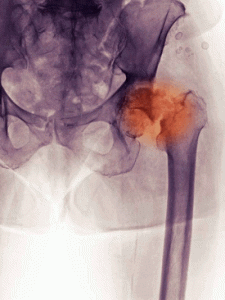Home > Central Peninsula Hospital Joint Center > Joint Replacement
Causes and Treatments for Knee and Hip Joint Pain
Knee and hip pain are common complaints and can arise from a variety of different reasons. You could have a muscle, ligament, or tendon problem that is the primary source of your pain. Or, you could be suffering from a particular joint diseases or conditions that’s causing your joint pain. Some of the most common causes of joint pain include: sprained ligaments, tendonitis, cartilage tears, overuse injuries, underlying conditions such as arthritis and mechanical problems.
When should I see a doctor?
If you are experiencing pain from a traumatic injury you should seek immediate medical attention. If your pain is accompanied by deformed joints, you are unable to walk or move your leg, or cannot bear weight on your affected leg you should see a doctor right away. Additionally, if you’re experiencing low to moderate levels of pain that has persisted for longer than one week, and self-care remedies such as rest, over the counter pain relievers, ice, or heat are not improving your condition you should contact a doctor for further evaluation.
What can I expect?
Excluding a traumatic injury that caused you to visit an emergency room, you would normally start with your Primary Care Provider in order to rule out any other causes for your joint pain other than the joint itself needing replacement. During this visit you will be asked when your pain first began, the primary location of your pain, how long you’ve had this pain, characteristics of your pain (i.e. burning, aching, or stabbing pain), if you know of any attributing factors that could be causing the pain or relieving factors and treatments you’ve tried such as heat, ice, or over the counter medications if any, the timing of increases in your pain, and to rate the severity of your pain.
Your doctor would most likely conduct a physical examination, check your range of motion, and may order some imaging studies which could include: X-rays, a CT Scan, MRI, or ultrasound of your joint. Based on your Primary Care Provider’s diagnosis, you may be referred to an orthopedic surgeon for further evaluation and treatment. An orthopedic surgeon is a medical doctor specifically trained in surgical and non-surgical treatment of diseases and disorders of the muscles and bones.
 What if I need joint replacement surgery?
What if I need joint replacement surgery?
Joint replacement is performed primarily for pain management when arthritis and joint degeneration becomes so severe that normal mobility and daily life activities are severely impaired by pain. Joint replacement is a major surgery, and the decision to have this surgery should be made only after careful consideration and discussions with your healthcare providers.
Once the decision has been made to move forward with surgery you will likely encounter an overwhelming amount of new and confusing information from a number of different sources including: websites, social media, television commercials, friends who have experienced joint replacement surgery, or your own research.
A Joint Replacement Guidebook will be provided to you from your surgeon’s clinic. This guidebook is also available to be picked up from the Program Coordinators office located in the Surgical Coordination Center. It has specific information about your upcoming procedure including: how to prepare, what to expect, and answers to some frequently asked questions.
You might also be required to enroll in and attend one of our joint replacement classes.
During the class, you will be able to ask us questions about your procedure, hospital stay, physical therapy, and recovery.
Patients who are required to attend a class include:
- First time joint replacement ever OR first-time joint replacement at CPH
- Patients who have had a joint replacement procedure at CPH, but it has been more than 3 years since their last procedure.
If you meet one of these requirements, we encourage you to be proactive and sign up for a class. More information can be found on the Resources page.
